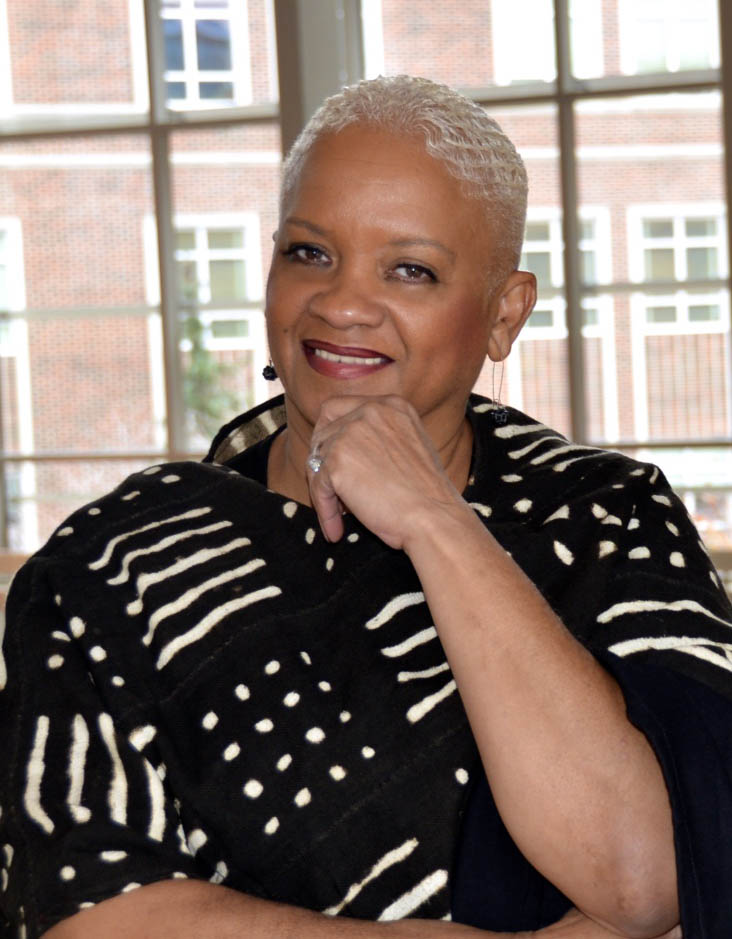October 5, 2022
‘Purdue Pursuits’: Advising a student organization
 Virginia Booth Womack
Virginia Booth Womack
Virginia Booth Womack found her home at Purdue as a student member of the National Society of Black Engineers (NSBE). She helped NSBE assemble its first national conference in 1975 and served as the organization’s first female national chair. More than 30 years later, Booth Womack returned to campus and began advising the very same organization that she and her peers had worked so hard to build.
“I remember as if it was yesterday,” Booth Womack says of her time as a student. “I was so excited to see students coming to West Lafayette from all over the nation to talk about how we could organize as a student body to increase the number of culturally responsible Black engineers across the nation. Now we are a global organization with more than 300 chapters.”
Booth Womack, director of the Minority in Engineering Program (MEP), stepped into her advising role for the Purdue NSBE chapter in 2004. Refusing to let her student success and diversity work stop there, Booth Womack assisted in the establishment of the first Purdue chapter of Latinos in Science and Engineering (MAES) in 2009 and still serves as adviser of the chapter. She also offers support to the American Indian Science and Engineering Society (AISES) and the Society of Hispanic Professional Engineers.
Before her roles at Purdue, Booth Womack worked in industry for nearly two decades as an industrial engineer and an area manager in manufacturing. She focused heavily on manufacturing process improvements and increasing throughput — a concept that she’s found also applies to her current work.
“Improving throughput and eliminating waste is important to any manufacturing process,” Booth Womack says. “If 100 engine blocks are placed on an assembly line, the goal is to yield 100% good engines out the door. I think the same way about students. If 100 students are admitted into the First Year Engineering program, of course we want 100 to graduate, but national graduation rates struggle, especially with minoritized students. Searching for the root cause of attrition in engineering is an engineering problem worth solving: How do you use engineering and throughput strategies to improve student success?”
As a student organization adviser, Booth Womack sees the power that students have to shape their future through leadership development. Students contribute to each other’s success by forming a family community and holding one another accountable for completing academic requirements. Being an advisor affords the opportunity to help students enhance membership retention, fundraising, program and leadership development and academic excellence.
About 'Purdue Pursuits'
A variety of programs, workshops, fellowships and trainings are offered to Purdue faculty and staff each semester. How can Purdue employees use these opportunities as small steps in reaching their personal and professional goals? Purdue Today's "Purdue Pursuits" series will share employees’ stories of growth and development during their experiences as active participants of their campus communities.Suggestions for the "Purdue Pursuits" series may be emailed to purduetoday@purdue.edu.
Booth Womack says the key to advising students is to avoid being a dictator and respecting the fact that they are the leaders and decision makers.
“Advising is just that — you give your informed advice,” Booth Womack says. “To offer informed advice doesn’t mean directing the organization or telling them what to do. It does involve giving historical context. I listen to their plan and give them advice on what I think they may consider in selecting the plan they want to execute. I try to offer various ideas when asked and provide support and feedback.”
Watching ideas develop into real-life projects is one of Booth Womack’s favorite aspects of advising. She fondly recalls a time when MAES and several other corporate and campus supporters planned and executed the Engineering and Science Extravaganza, a K-12 program that brought buses of sixth, seventh and eighth graders to Purdue for a day of hands-on engineering activities.
“I will never forget the celebration and how the kids felt,” Booth Womack says. “Seeing the response to student organizations from Purdue faculty and administrative leadership and the investments made in student professional development and academic success — that’s the epitome of what advising is all about. Serving as an adviser is an investment that pays the reward of seeing student leaders mature and manage responsibility successfully, so I’m hoping that more faculty and staff will become advisers.”
Faculty and staff can take the first step to becoming an adviser by watching a short video and completing the adviser interest form. Booth Womack says it’s important for individuals to get a feel for the organization and find their niche before committing.
“You don’t have to be an adviser at the onset, but when your confidence and vision of the students and the students’ confidence in you as an adviser come together, then it’s easy to make the decision to become an adviser,” Booth Womack says. “Get involved now would be my advice.”
How you can participate
Full-time faculty members and management or professional staff are eligible to serve as student organization advisers.
For more information about adviser eligibility, expectations and resources, visit the Student Activities and Organizations (SAO) website. Learn more about different student organizations offered at Purdue by visiting BoilerLink.
Questions should be directed to the SAO office at 765-494-1231 or sao@purdue.edu.
Writer: Carly Rosenberger, rosenbe4@purdue.edu

